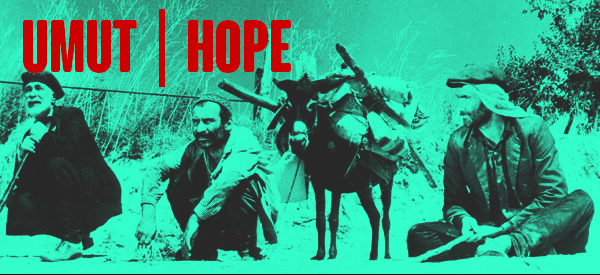
HOPE is considered a landmark in the history of Turkish cinema. Güney called it an “epic of verité” due to its break with the conventions of Turkish commercial cinema, the gleaming sets and powdered starlets typical of Yesilçam (the Turkish Hollywood). Although it is often compared to De Sica’s BICYCLE THIEVES, HOPE also has much in common with Glauber Rocha’s BLACK GOD, WHITE DEVIL—with its rural merchant protagonist who gets fleeced one too many times and turns to a messianic preacher for guidance—and with Ousmane Sembene’s BOROM SARRET, the tale of a poor horse-cart driver in Dakar getting kicked around by the law.
Güney’s character, Cabbar, drives a horse-driven cart in Istanbul. Business is bad, and the rapidly modernizing city leaves little room for a man who uses such quaintly obsolete means to earn his living. His wife, mother, and five children depend on him, and their domestic life is characterized by constant threats and abuse. Indebted to everyone he knows, Cabbar’s fate is sealed when a bourgeois asshole in a sports car mows down one of his parked horses. Unable to borrow more money to replace it or even pay back his existing debts, Cabbar tries his luck at the lottery, then turns to armed robbery. Unfortunately, the American tourist he and his friend try to hold up fails to understand their threats and chases them away in anger. Furious at his creditors and indifferent to other cart drivers’ efforts to organize in a union, Cabbar falls under the influence of a hodja, a kind of wise-man witch-doctor, who promises him buried riches. Cabbar and his friend sever their bonds to the city and join the hodja in a clearly insane quest for treasure hidden in the surrounding desert.
Although it is often interpreted as a critique of the backwards superstitions rampant among the uneducated Turkish proletariat, HOPE should be read instead as a revolutionary call to break with old forms of organizing (whether in the family or in labor unions) and to embrace a non-instrumental form-of-life. It is a manifesto for the abolition of homo economicus and for the re-enchantment of the world.
7:30pm at Spectacle Theater, $5
124 So. 3rd Street, near Bedford
Leave a Reply